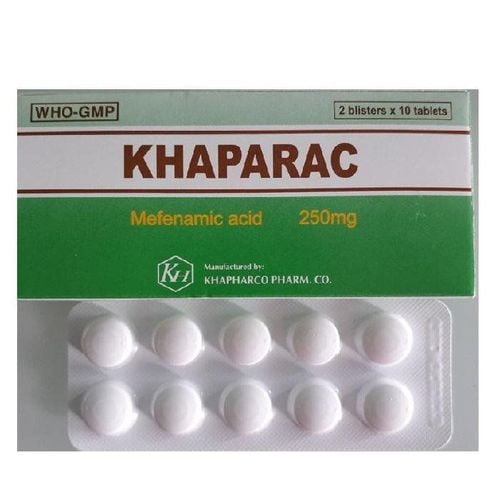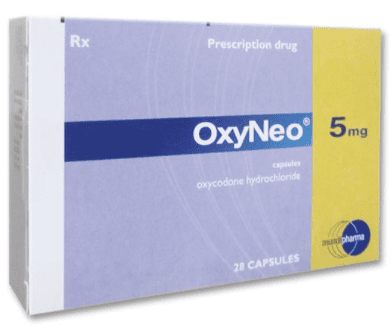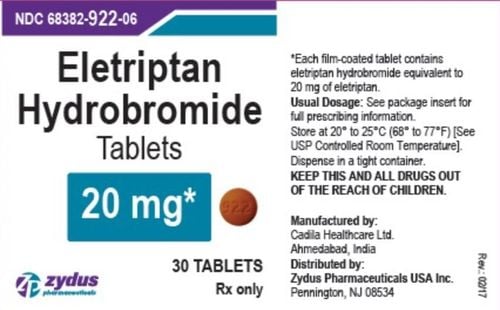This is an automatically translated article.
Idilax is made in the form of tablets, with the main ingredient being mefenamic acid. It is used in the treatment of mild to moderate pain.
1. Uses of the drug Idilax
1 Idilax tablet contains 250mg of mefenamic acid and other excipients. 1 Idilax Extra tablet contains 500mg of mefenamic acid and other excipients. This article focuses on the drug Idilax.
Mefenamic acid, an anthranilic acid derivative, is a non-steroidal anti-inflammatory drug that is pharmacologically and structurally related to meclofenamate sodium. Mefenamic acid has anti-inflammatory, analgesic, and antipyretic activities. This ingredient inhibits prostaglandin synthesis in tissues by inhibiting cyclooxygenase (the enzyme that catalyzes the formation of prostaglandin precursors) from arachidonic acid.
The anti-inflammatory action of mefenamic acid is due to the mechanism of blocking prostaglandin synthesis and prostaglandin release during inflammation; The analgesic effect of mefenamic acid may be due to both central and peripheral mechanisms and also anti-inflammatory effects; The hypothermic effect of mefenamic acid may be due to inhibition of central nervous system prostaglandin synthesis. Indications for use of Idilax medicine for the treatment of mild to moderate pain: Migraine, headache, pain after childbirth, pain due to trauma, toothache, pain after surgery, pain and fever in case of inflammation , dysmenorrhea .
Contraindications to the use of Idilax:
Patients with a history of sensitivity to mefenamic acid, aspirin and non-steroidal anti-inflammatory drugs; Patients with gastric and duodenal ulcers are progressing; Patients with impaired kidney or liver function; Pregnant women from 6 months onwards.
2. How to use and dose of Idilax
The drug is taken orally. Adults and children over 14 years old take a dose of 2 tablets x 3 times/day.
When using Idilax, the patient may experience acute poisoning, mainly manifesting as worsening side effects, which can lead to convulsions. Treatment is immediate vomiting or gastric lavage for the patient. Next, it is necessary to treat the symptoms and provide supportive treatment for the patient. After inducing vomiting and gastric lavage, activated charcoal can be used to reduce drug absorption in the gastrointestinal tract, in the liver and intestinal cycle.
3. Side effects of the drug Idilax
When using Idilax, patients may experience some side effects such as:
Digestion: Nausea, vomiting, diarrhea, bleeding in patients with stomach ulcers; Nervous: Dizziness, lightheadedness, headache, tinnitus, restlessness, weakness, insomnia, somnolence; Liver: Hepatotoxicity; Blood: Thrombosis, hemolytic anemia; Kidney: Renal failure, blood in the urine, hydronephrosis; Other side effects: Hypersensitivity reactions (fever, urticaria, bronchospasm), photosensitivity reactions, pancreatitis, pneumonia, Stevens - Johnson syndrome. Patients should immediately notify the doctor about the side effects encountered when using Idilax for effective treatment and treatment interventions.
4. Be careful when using Idilax medicine
Before and while using Idilax, patients should note:
Do not use Idilax for patients with gastrointestinal ulcers; Idilax should be taken after meals. However, food may decrease absorption of this drug; Idilax should be used with caution in patients with infections because the drug may mask the symptoms of the disease; Use caution when using Idilax in patients with asthma or allergies; Idilax should be used with caution in patients with blood thinning or high blood pressure; Use caution when using Idilax in patients with weak liver, heart, and kidneys; Use caution when using Idilax for the elderly, if necessary, the dose can be reduced; Mefenamic acid may interfere with the accuracy of thyroid function tests because it lowers the level of thyroid hormone in the blood; The drug Idilax has no contraindications for pregnant women in the first 3 months. However, it is still necessary to use the drug with caution during this period (if prescribed by a doctor after carefully weighing the benefits and risks). In the 3rd trimester of pregnancy, the drug can affect the fetus such as causing toxicity on the heart, lungs, kidney dysfunction leading to kidney failure, prolonging blood clotting time in the baby and mother, etc. Therefore, this drug should not be used during the last months of pregnancy; Idilax is excreted in breast milk, so it is best not to use the drug in nursing mothers; Idilax can cause dizziness, so it should be used with caution when driving or operating machinery.
5. Idilax drug interactions
Drug interactions can affect the action and effectiveness of the drug, increasing the side effects of some drugs. Some drug interactions of Idilax include:
Concomitant use of Idilax with oral anticoagulants increases the risk of bleeding because nonsteroidal anti-inflammatory drugs inhibit platelet function and attack the gastric mucosa - duodenum; Mefenamic acid increases the concentration of glycosides, methotrexate and lithium if used concomitantly with these drugs; Concomitant use of Idilax with diuretics, cyclosporin or tacrolimus may cause nephrotoxicity; If Idilax is used concurrently with potassium-containing diuretics, it may increase blood potassium; Concomitant use of Idilax with quinolones may cause convulsions; Idilax when used simultaneously will increase the effect of phenytoin and sulphonylurea of antidiabetic drugs; Idilax should not be used concurrently with other non-steroidal anti-inflammatory drugs because it will increase side effects; Concomitant use of Idilax with corticosteroids can cause stomach ulcers and bleeding; Concomitant use of Idilax with pentoxifylline, alcohol, ticlopidine, bisphosphonate may cause antiplatelet aggregation; Concomitant use of Idilax with zidovudine will cause hematological toxicity; Concomitant use of Idilax with ritonavir increases plasma concentrations of mefenamic acid; Concomitant use of Idilax with mifepriston will reduce the effectiveness of mifepriston; Concomitant use of Idilax with misoprostol may increase gastrointestinal toxicity. When using Idilax, the patient should strictly follow the instructions and instructions of the doctor on how to use, dose and time to take the drug. If there are any abnormal signs, the patient should immediately notify the doctor for timely intervention to avoid unpredictable consequences.
Please dial HOTLINE for more information or register for an appointment HERE. Download MyVinmec app to make appointments faster and to manage your bookings easily.













